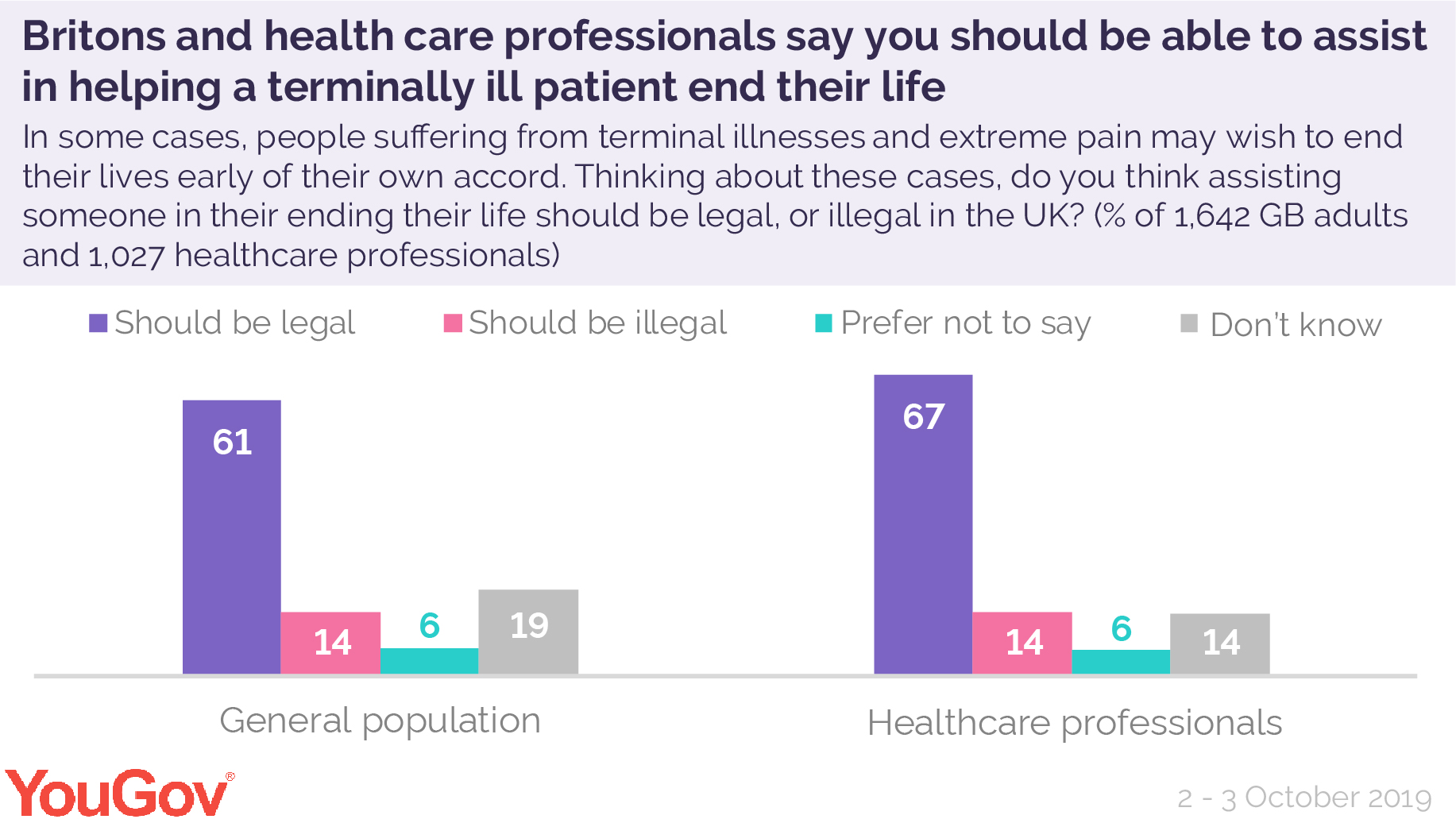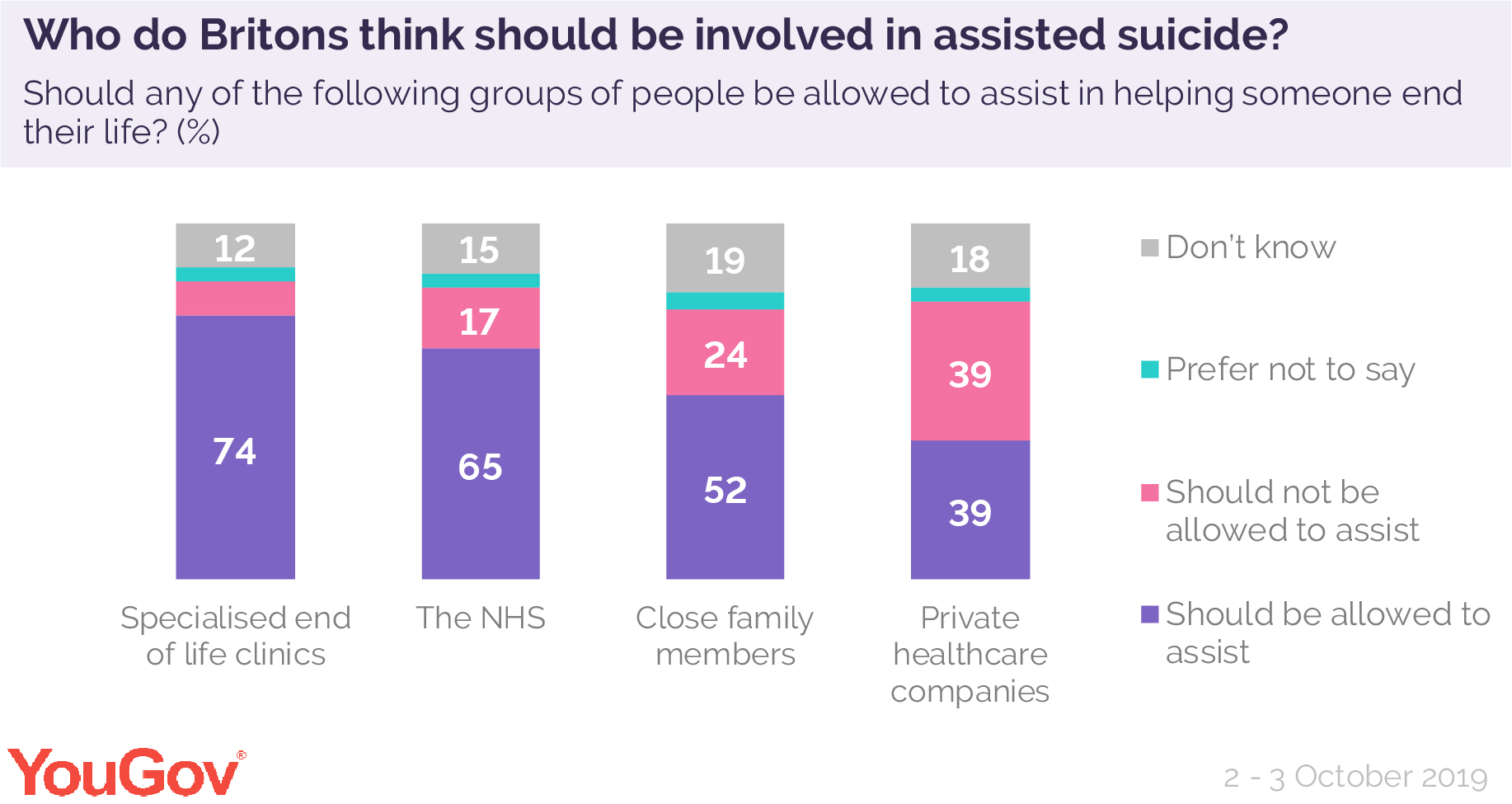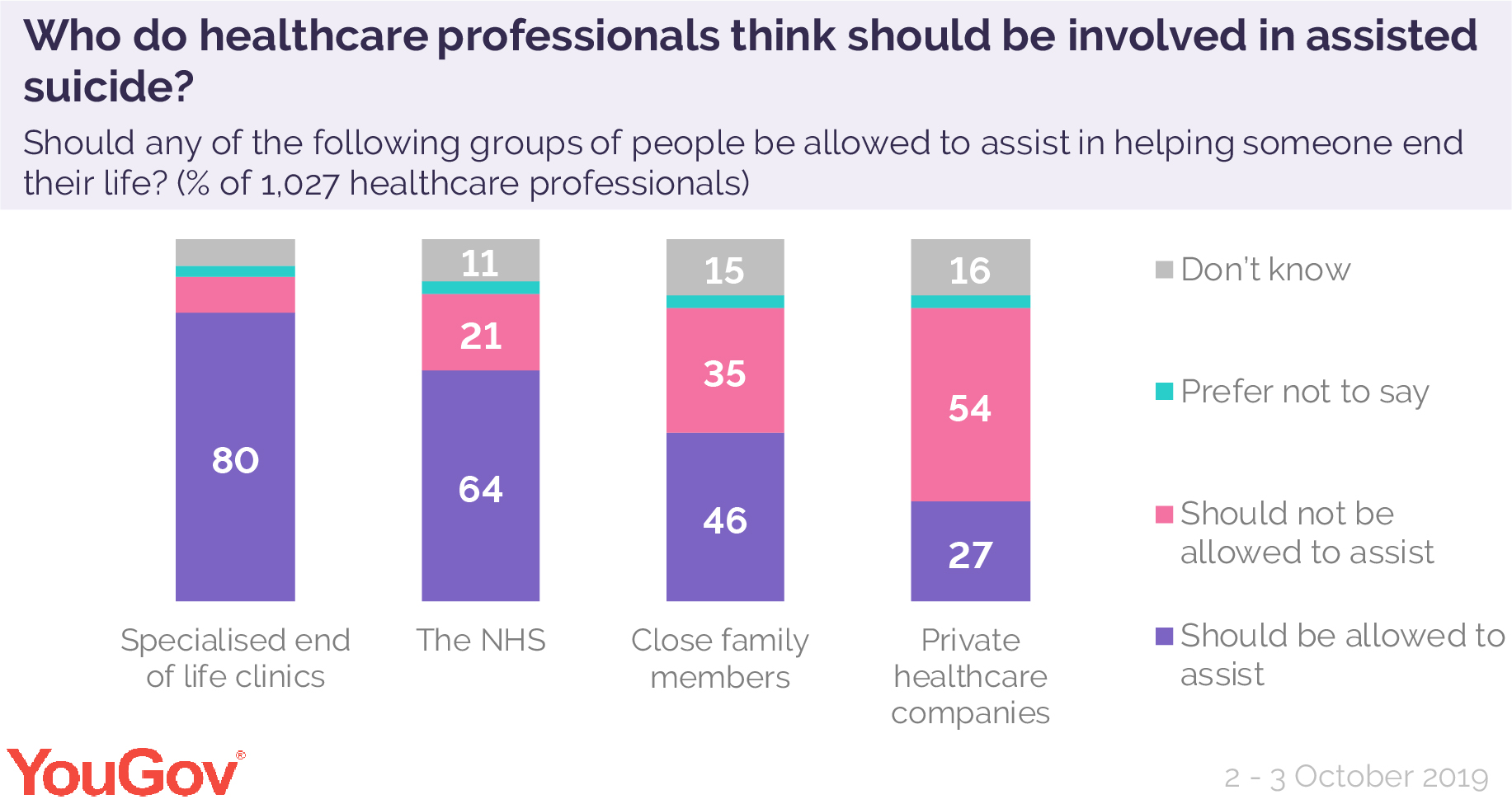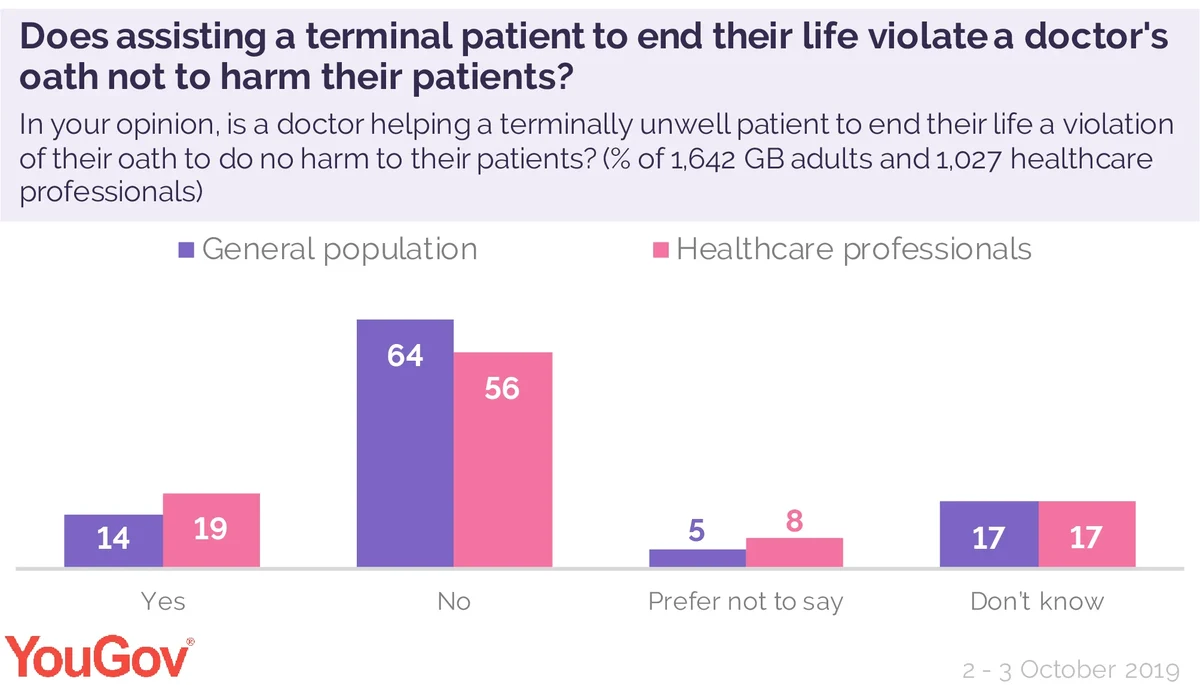Britons and healthcare workers agree that terminally ill patients should be able to end their life on their own terms - without fear of friends and relatives facing prison.
Under English law, all forms of assisted suicide are illegal, regardless of a patient’s wishes. Helping someone end their life can result in anywhere from fourteen years to a lifetime in prison for manslaughter or murder.
However, new YouGov research of British adults and healthcare professionals reveals that both groups think helping a terminally ill patient to end their suffering should not only be legal, but assisted by the NHS. Three quarters (76%) of the general population and eight in ten (80%) healthcare workers think terminally ill patients should be given freedom and protection to take the choice.
A further six in ten Britons (60%) think people should be allowed to help a terminally ill patient end their life without legal repercussions. Among healthcare professionals 67% agree that those helping a terminally ill person to end their life should not face prosecution. One in seven (14%) of both groups saying the law should remain unchanged however.
In countries where euthanasia and assisted suicide are legal, such as Switzerland, non-profit societies like Dignitas offer help to those wishing to end their life. Three quarters of Britons (74%) and UK healthcare professionals (80%) say similar clinics should be allowed.
Just under two thirds (65%) of Britons think the NHS should be allowed to assist in helping someone end their life, however 17% think they shouldn’t. Britons are split however on the involvement of private healthcare companies in assisted suicide, 39% say private healthcare should be allowed to assist in someone ending their life, and 39% are opposed to private companies being involved.
Healthcare professionals agree that the NHS should be allowed to assist – but are more strongly opposed to private healthcare being involved in the process. Over half over healthcare professionals (54%) say that private companies should have no role in play in ending lives, and just over (27%) believe they should – interestingly this opposition equal among workers in both the private and public sector.
Despite being slightly more supportive than the general public on removing legal restrictions, healthcare professionals are concerned that it may violate their oath to do no harm.
Healthcare professionals are eight percentage points less likely (56%) to say that doctors who help terminally ill patients to die are not breaking their oath than the general public (64%).
Image: Getty


 Click to enlarge
Click to enlarge Click to enlarge
Click to enlarge Click to enlarge
Click to enlarge










